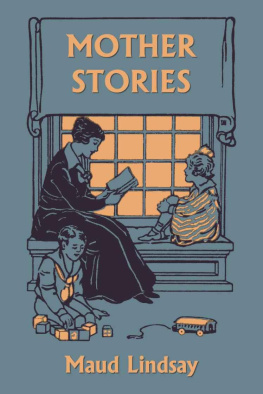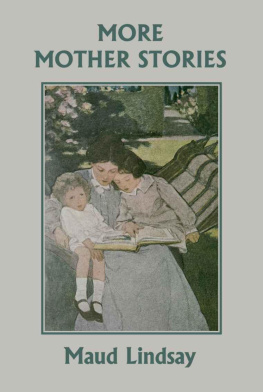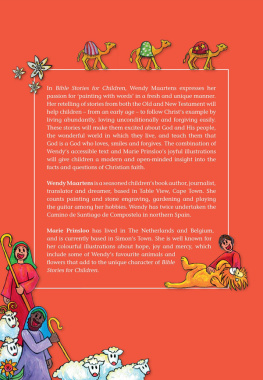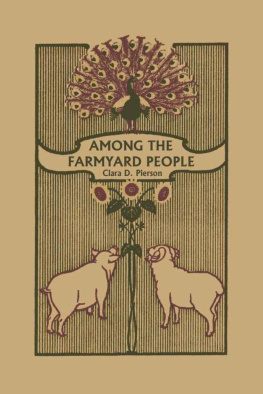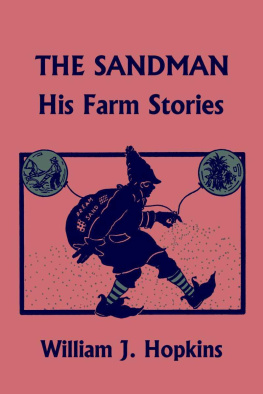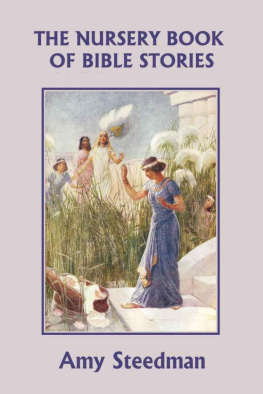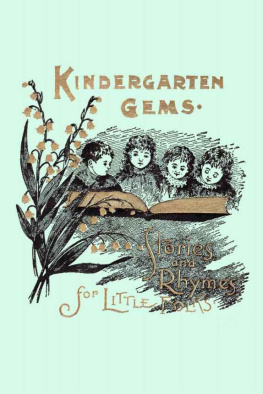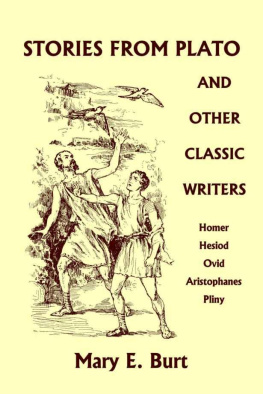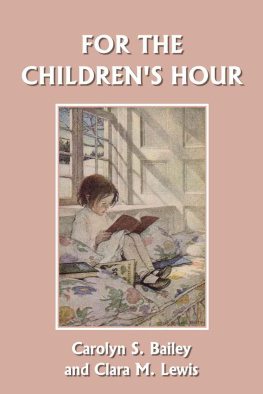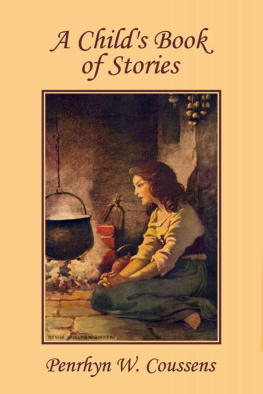Mother Stories
by
Maud Lindsay
Yesterday's Classics
Chapel Hill, North Carolina
Cover and Arrangement 2010 Yesterday's Classics, LLC
All rights reserved. No part of this book may be reproduced or retransmitted in any form or by any means without the written permission of the publisher.
This edition, first published in 2010 by Yesterday's Classics, an imprint of Yesterday's Classics, LLC, is an unabridged republication of the work originally published by Milton Bradley Company in 1900. This title is available in a print edition (ISBN 978-1-59915-167-0).
Yesterday's Classics, LLC
PO Box 3418
Chapel Hill, NC 27515
Yesterday's Classics
Yesterday's Classics republishes classic books for children from the golden age of children's literature, the era from 1880 to 1920. Many of our titles are offered in high-quality paperback editions, with text cast in modern easy-to-read type for today's readers. The illustrations from the original volumes are included except in those few cases where the quality of the original images is too low to make their reproduction feasible. Unless specified otherwise, color illustrations in the original volumes are rendered in black and white in our print editions.
Preface
I have endeavored to write, for mothers and dear little children, a few simple stories, embodying some of the truths of Froebel's Mother Play.
The Mother Play is such a vast treasure house of Truth, that each one who seeks among its stores may bring to light some gem; and though, perhaps, I have missed its diamonds and rubies, I trust my string of pearls may find acceptance with some mother who is trying to live with her children.
I have written my own mottoes, with a few exceptions, that I might emphasize the particular lesson which I endeavor to teach in the story; for every motto in the Mother Play comprehends so much that it is impossible to use the whole for a single subject. From "The Bridge" for instance, which is replete with lessons, I have taken only one,for the story of the "Little Traveler."
Most of these stories have been told and retold to little children, and are surrounded, in my eyes, by a halo of listening faces.
"Mrs. Tabby Gray" is founded on a true story of a favorite cat. "The Journey" is a new version of the old Stage Coach game, much loved by our grandmothers; and I am indebted to some old story, read in childhood, for the suggestion of "Dust Under the Rug," which was a successful experiment in a kindergarten to test the possibility of interesting little children in a story after the order of Grimm, with the wicked stepmother and her violent daughter eradicated.
Elizabeth Peabody says we are all free to look out of each other's windows; and so I place mine at the service of all who care to see what its tiny panes command.
M AUD L INDSAY
Contents
The Wind's Work
Power invisible that God reveals,
The child within all nature feels,
Like the great wind that unseen goes,
Yet helps the world's work as it blows.
The Wind's Work
O NE morning Jan waked up very early, and the first thing he saw when he opened his eyes was his great kite in the corner. His big brother had made it for him; and it had a smiling face, and a long tail that reached from the bed to the fireplace. It did not smile at Jan that morning though, but looked very sorrowful and seemed to say "Why was I made? Not to stand in a corner, I hope!" for it had been finished for two whole days and not a breeze had blown to carry it up like a bird in the air.
Jan jumped out of bed, dressed himself, and ran to the door to see if the windmill on the hill was at work; for he hoped that the wind had come in the night. But the mill was silent and its arms stood still. Not even a leaf turned over in the yard.
The windmill stood on a high hill where all the people could see it, and when its long arms went whirling around everyone knew that there was no danger of being hungry, for then the Miller was busy from morn to night grinding the grain that the farmers brought him.
When Jan looked out, however, the Miller had nothing to do, and was standing in his doorway, watching the clouds, and saying to himself (though Jan could not hear him):
"Oh! how I wish the wind would blow
So that my windmill's sails might go,
To turn my heavy millstones round!
For corn and wheat must both be ground,
And how to grind I do not know
Unless the merry wind will blow."
He sighed as he spoke, for he looked down in the village, and saw the Baker in neat cap and apron, standing idle too.
The Baker's ovens were cold, and his trays were clean, and he, too, was watching the sky and saying:
"Oh! how I wish the wind would blow,
So that the Miller's mill might go,
And grind me flour so fine, to make
My good light bread and good sweet cake!
But how to bake I do not know
Without the flour as white as snow."
Jan heard every word that the Baker said, for he lived next door to him; and he felt so sorry for his good neighbor that he wanted to tell him so. But before he had time to speak, somebody else called out from across the street:
"Well! I'm sure I wish the wind would blow,
For this is washing day, you know.
I've scrubbed and rubbed with all my might,
In tubs of foam from morning light,
And now I want the wind to blow
To dry my clothes as white as snow."
This was the Washerwoman who was hanging out her clothes. Jan could see his own Sunday shirt, with ruffles, hanging limp on her line, and it was as white as a snowflake, sure enough!
"Come over, little neighbor," cried the Washerwoman, when she saw Jan. "Come over, little neighbor, and help me work to-day!" So, as soon as Jan had eaten his breakfast, he ran over to carry her basket for her. The basket was heavy, but he did not care; and as he worked he heard some one singing a song, with a voice almost as loud and as strong as the wind.
"Oh! if the merry wind would blow,
Yeo ho! lads, ho! yeo ho! yeo ho!
My gallant ship would gaily go,
Yeo ho! lads, ho! yeo ho!
In fresh'ning gales we'd loose our sails,
And o'er the sea,
Where blue waves dance, and sunbeams glance,
We'd sail in glee,
But winds must blow, before we go,
Across the sea,
Yeo ho! my lads, yeo ho!"
Jan and the Washerwoman and all the neighbors looked out to see who was singing so cheerily, and it was the Sea-captain whose white ship Jan had watched in the harbor. The ship was laden with linen and laces for fine ladies, but it could not go till the wind blew. The Captain was impatient to be off, and so he walked about town, singing his jolly song to keep himself happy.
Jan thought it was a beautiful song, and when he went home he tried to sing it himself. He did not know all the words, but he put his hands in his pockets and swelled out his little chest and sang in as big a voice as he could: "Yeo ho! my lads, yeo ho!"
While he sang, something kissed him on the cheek; and when he turned to see what it was his hat spun off into the yard as if it were enchanted; and when he ran to pick his hat up he heard a whispering all through the town. He looked up, and he looked down, and on every side, but saw nobody! At last the golden weather-vane on the church tower called down:
"Foolish child, it is the wind from out of the east."
The trees had been the first to know of its coming, and they were bowing and bending to welcome it; while the leaves danced off the branches and down the hill, in a whirl of delight.

